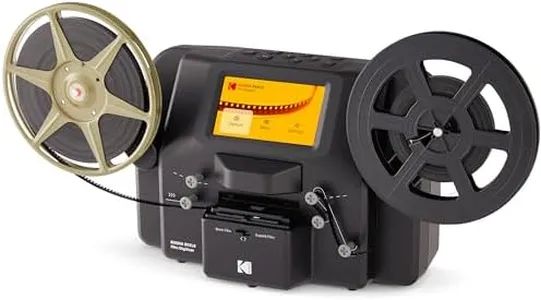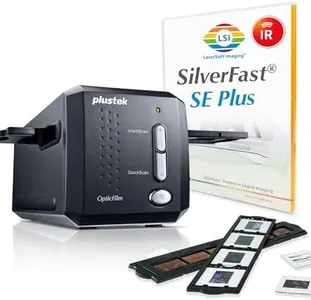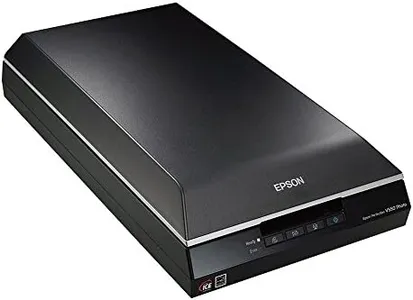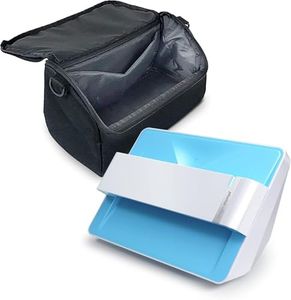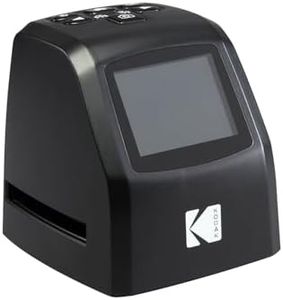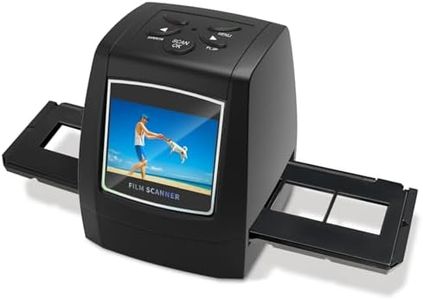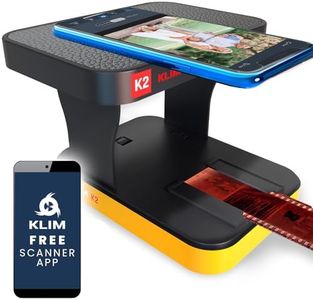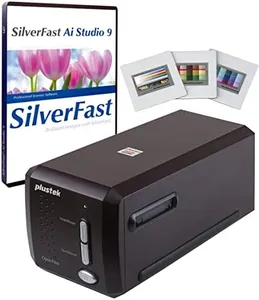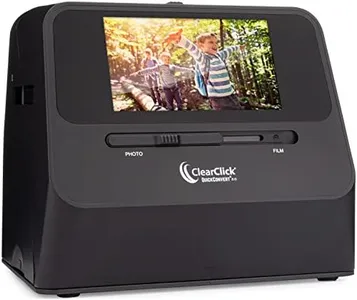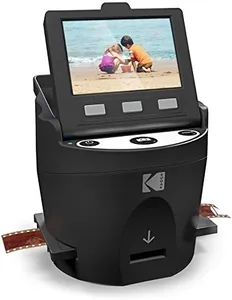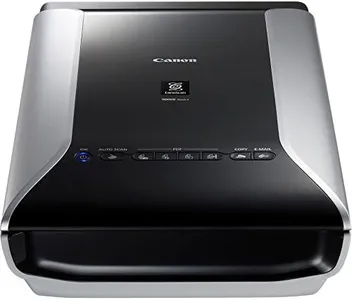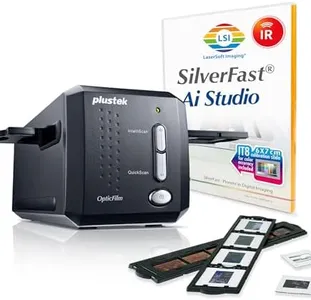10 Best Photo Negative Scanners 2025 in the United States
Our technology thoroughly searches through the online shopping world, reviewing hundreds of sites. We then process and analyze this information, updating in real-time to bring you the latest top-rated products. This way, you always get the best and most current options available.

Our Top Picks
Winner
Epson Perfection V600 Color Photo, Image, Film, Negative & Document Scanner
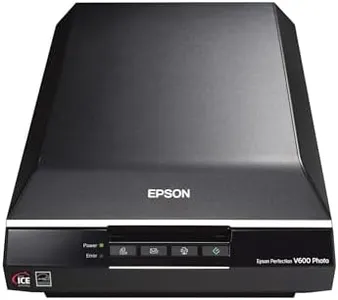 Epson
EpsonThe Epson Perfection V600 Color Scanner is a strong contender in the photo-negative-scanner category, particularly for those who need high-resolution scans of photos and film. With a resolution of up to 6400 x 9600 dpi, it allows for stunning enlargements, making it suitable for both amateur photographers and professionals looking to restore or digitize their work. The scanner's built-in transparency unit supports various film types, including slides and negatives, which is a definite plus for those who frequently work with different formats.
One of its notable strengths is the Digital ICE technology, which helps remove dust and scratches from scanned film, ensuring cleaner images. Its easy photo fix feature also aids in restoring faded colors, making it user-friendly for those who may not be tech-savvy. Additionally, the four customizable buttons streamline tasks, allowing users to quickly scan, copy, email, or create PDFs without navigating through complicated menus.
There are some drawbacks to consider. While the V600 excels in resolution and features, its scanning speed may not be as fast as some users would prefer, especially when dealing with larger volumes of pictures or film. Also, at 9 pounds, it might be considered somewhat bulky for users with limited space. Some users have reported occasional compatibility issues with newer operating systems, which could be a concern for those looking to future-proof their technology.
In terms of ease of use, the Epson V600 does cater well to beginners, but its more advanced features might require a bit of a learning curve for those wanting to dive deeper into editing and restoration. This scanner is a fantastic option for photography enthusiasts and those needing to digitize and restore a variety of film types, while its minor shortcomings should be kept in mind.
Kodak Digital Film Scanner, Film and Slide Scanner with 5” LCD Screen, Convert Color & B&W Negatives & Slides 35mm, 126, 110 Film to High Resolution 22MP JPEG Digital Photos, Black
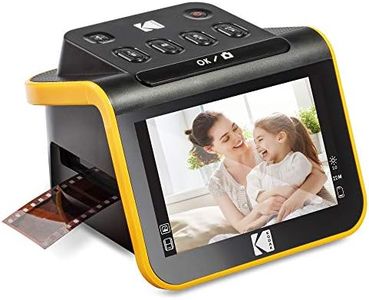 KODAK
KODAKThe Kodak Digital Film Scanner is a versatile device designed to help you relive old memories by converting a variety of film types and slides into high-resolution digital photos. With its impressive 22MP resolution, it ensures your converted images are sharp and clear. The large 5” LCD screen is a significant advantage, allowing users to preview and edit photos directly on the device, making it user-friendly even for those not tech-savvy.
Additionally, the scanner supports a wide range of film types, including 35mm, 126, and 110, accommodating most users' needs. The device's easy-load film inserts and quick-feeding tray technology streamline the scanning process, making it efficient and straightforward. Furthermore, the scanner's compatibility with SD cards up to 32GB and its connectivity via USB and HDMI ensure it works well with modern devices.
However, a notable downside is the lack of SD card inclusion, which means you'll need to purchase one separately. Additionally, while the scanner offers basic editing tools, professional photographers might find these features somewhat limited. Despite these minor drawbacks, the Kodak Digital Film Scanner's combination of high resolution, ease of use, and broad compatibility makes it a strong contender for anyone looking to digitize their old photo negatives and slides.
Epson Perfection V850 Pro scanner
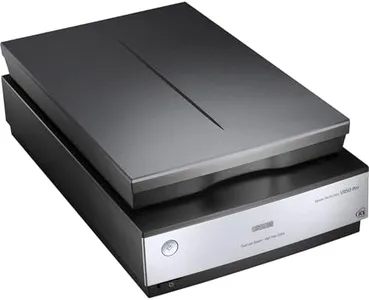 Epson
EpsonThe Epson Perfection V850 Pro scanner is a solid choice for those looking to digitize photos and negatives with exceptional quality. One of its standout features is the impressive 6400 dpi resolution, which allows for highly detailed scans. Additionally, the scanner boasts a remarkable dynamic range with a Dmax of 4.0, enabling smooth gradations and fine shadow details that are crucial for preserving the nuances of photographs. The exclusive dual lens system is another plus, as it automatically selects the best lens for the type of scan being performed, optimizing results without requiring much input from the user.
In terms of compatibility, the V850 Pro works with various operating systems, including both older and newer versions of Windows and Mac OS, making it versatile for a wide range of users. Its ability to handle multiple film types further enhances its appeal, ensuring that both amateur and professional photographers can make use of its capabilities.
There are some drawbacks to consider. The scanner is relatively heavy at 20.9 pounds, which may be cumbersome for those looking for portability. Additionally, while it offers excellent scanning quality, the scan speed could be an issue for users who need to process large batches of images quickly. The setup may also be a bit complex for those who are not tech-savvy, which could lead to some frustration during initial use.
Buying Guide for the Best Photo Negative Scanners
Choosing the right photo-negative scanner can be a bit overwhelming, but understanding the key specifications can help you make an informed decision. A photo-negative scanner is a device that converts film negatives into digital images. The right scanner for you will depend on your specific needs, such as the quality of the scans you require, the types of negatives you have, and how often you plan to use the scanner. Here are some key specifications to consider when selecting a photo-negative scanner and how to navigate them to find the best fit for you.FAQ
Most Popular Categories Right Now
